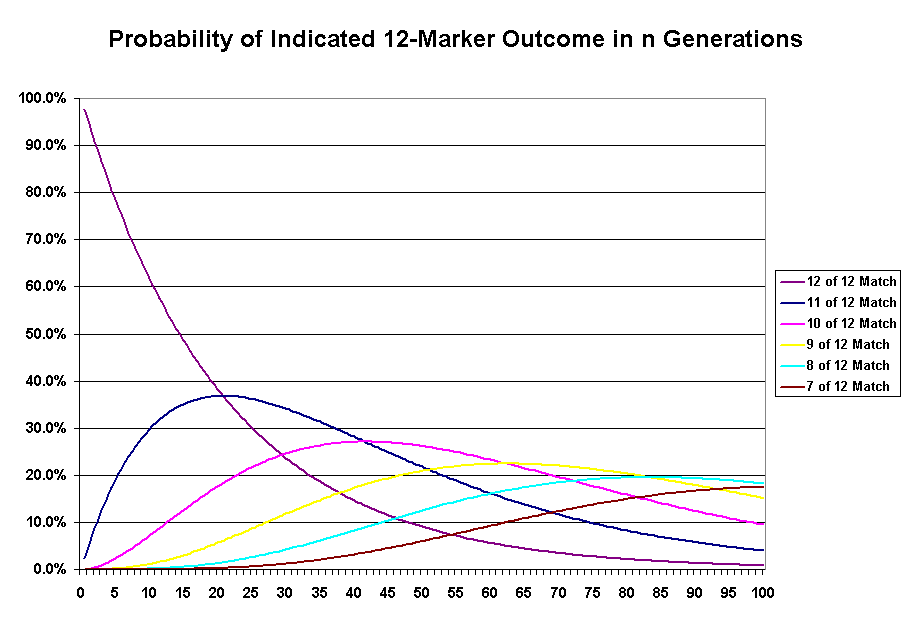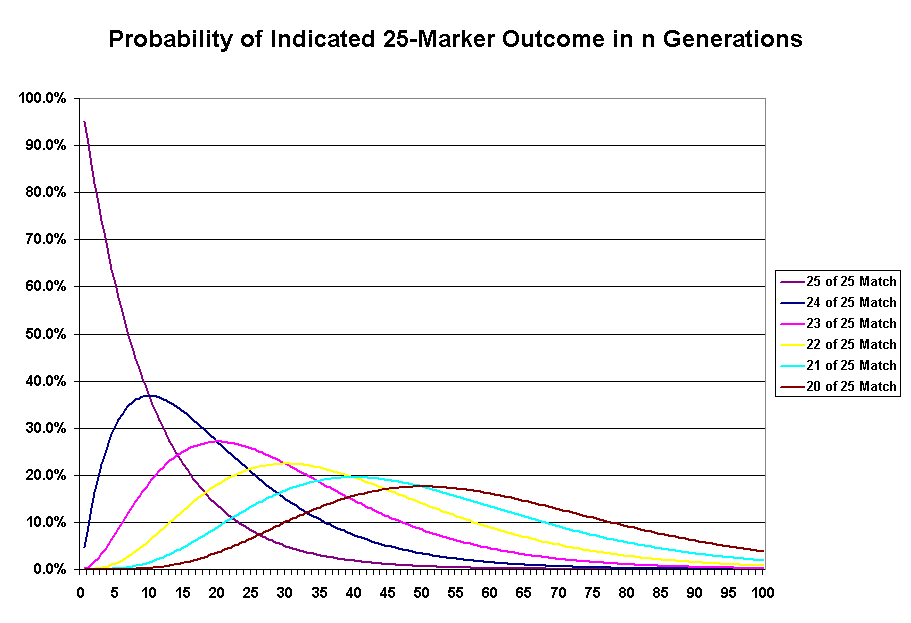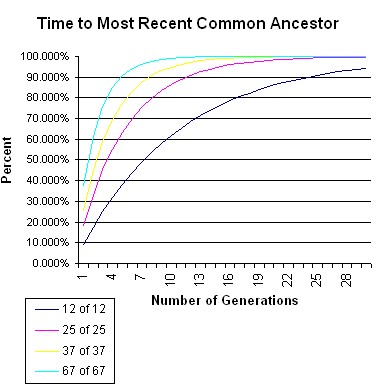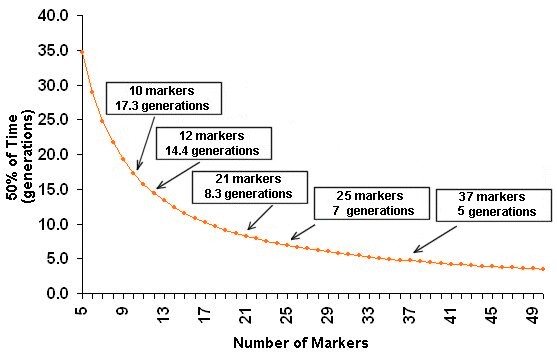
I am indebted to William Alexander Roper, Jr. (mailto:william.roper@verizon.net) for the following thoughful analysis of Y-chromosome markers probabilities:
After 10 generations, the MOST LIKELY marker comparison outcome for 12 markers is
 |
So the most likely outcome after 10 generations is that all of the markers match, but the prospect of a 1-marker difference is actually pretty high. And the chance of a 2 marker deviation is certainly not inconceivable. Put another way, if you randomly selected 20 test subject all known to share a common ancestor 10 generations back, you would expect to have one of these 20 come up with a 2-marker deviation.
After 15 generations, the most likely marker comparison for 12 markers is:
By the 22nd Generation, there is a crossover, and it is more likely that there will be a 1-marker difference (37%) than no difference (35%). Also, the prospect that 2 markers differ by 1 has grown to 19% and the chance of a 3-marker difference is more than remote at 7%. The 4-marker difference (1.8%) and 5-marker difference (0.4%) are still rather unlikely with the 12-Marker Test.
The expected distribution for the 25-marker test is even more interesting. After only 10 generations, a 1-marker difference (36.82%) is already negligibly more likely than no difference (36.75%). A 2-marker difference (18%) would not be unusual, and a 3-marker difference (6%) would be expected in a sample of twenty random test subjects known to be related with an MRCA ten generations back!
 |
 |
 |